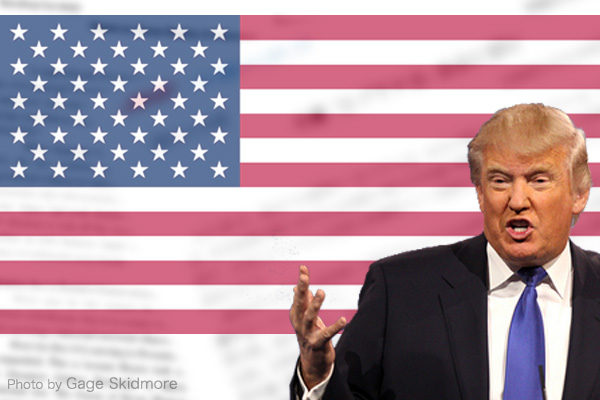The possibility of a revival of the Trump administration is growing in the United States. As Republican voter turnout is expected to increase due to the recent assassination attempt on Donald Trump, the possibility of a Republican majority in both the House and Senate of Congress is also increasing partly due to the confusion over the selection of the Democratic presidential nominee. Therefore, we should regard that policies pursued by the Trump Republicans will be realized at a higher speed than during the first Trump administration. Here, I would like to highlight some important points about what the Trump strategy pursues and how Japan should respond.
Ukraine ceasefire to break up the new axis of evil
The first is the U.S.’ breakaway from the decarbonization fundamentalism. Not only Trump but also Republicans in general do not accept as unscientific the argument that carbon dioxide emissions from human activities cause climate change. They believe that if the competitiveness of U.S. companies declines due to excessive U.S. decarbonization regulations, Chinese companies that do not care about environmental issues will increase their global market shares, exerting various negative impacts on international politics and economy. The U.S. electric vehicle promotion policy will be discontinued. As restrictions imposed under President Joe Biden’s executive orders will be repealed, U.S. oil and natural gas production and exports will increase. Oil-related overseas investment restrictions will also be lifted, allowing relations between the U.S. and Saudi Arabia to improve. Subsequent oil and gas price drops should be welcomed by Japan.
The U.S. will come back to a policy of total clampdown on Iran that financially supports terrorists. This will contribute to the stability of the Middle East from which Japan imports more than 90% of its oil consumption. Trump has also vowed to expel Iranian oil importers from the U.S. market, indicating that China that currently buys two-thirds of Iranian oil would be affected most.
The Trump camp believes that an early ceasefire is a right answer to the Russia-Ukraine war and has already begun to mediate. As long as the war continues, the new axis of evil of Russia, China, Iran, and North Korea will strengthen its unity and increase negative impacts on the liberal world. After achieving the ceasefire, Trump will thoroughly squeeze Iran, put the screws on China in the high technology field, suppress North Korea while maintaining friendly relations ostensibly, and restore the relationship with Russia during the first Trump administration. This will be Trump’s basic policy towards the four axis countries.
For a rebuttal to the argument that China will be tempted to invade Taiwan unless Russia is defeated in Ukraine, the Trump camp says that the continuation of weapon supply to Ukraine without an exit strategy is stretching thin the stock of weapons needed to defend Taiwan, which will be more tempting to China.
Expecting Japan-U.S.-Taiwan joint military exercises
With regard to enhancing deterrence in preparation for a Taiwan contingency, the Trump camp has put forward the idea of seeking a more in-depth military contributions from Japan, including the implementation of Japan-U.S.-Taiwan joint military exercises. Even without being encouraged by the next Trump administration, a Taiwan contingency is a Japan contingency, and Japan should promptly enact its version of the 2018 U.S. Taiwan Travel Act to promote direct exchanges between Japanese and Taiwanese military officials.
The Trump camp has also said small modular nuclear reactors is the pillar of future electricity supply. Japan should refer to this idea when considering how to secure energy supply.
Yoichi Shimada is a professor emeritus at Fukui Prefectural University and a research fellow and Planning Committee Member, Japan Institute for National Fundamentals. He follows U.S. domestic politics and foreign relations.


